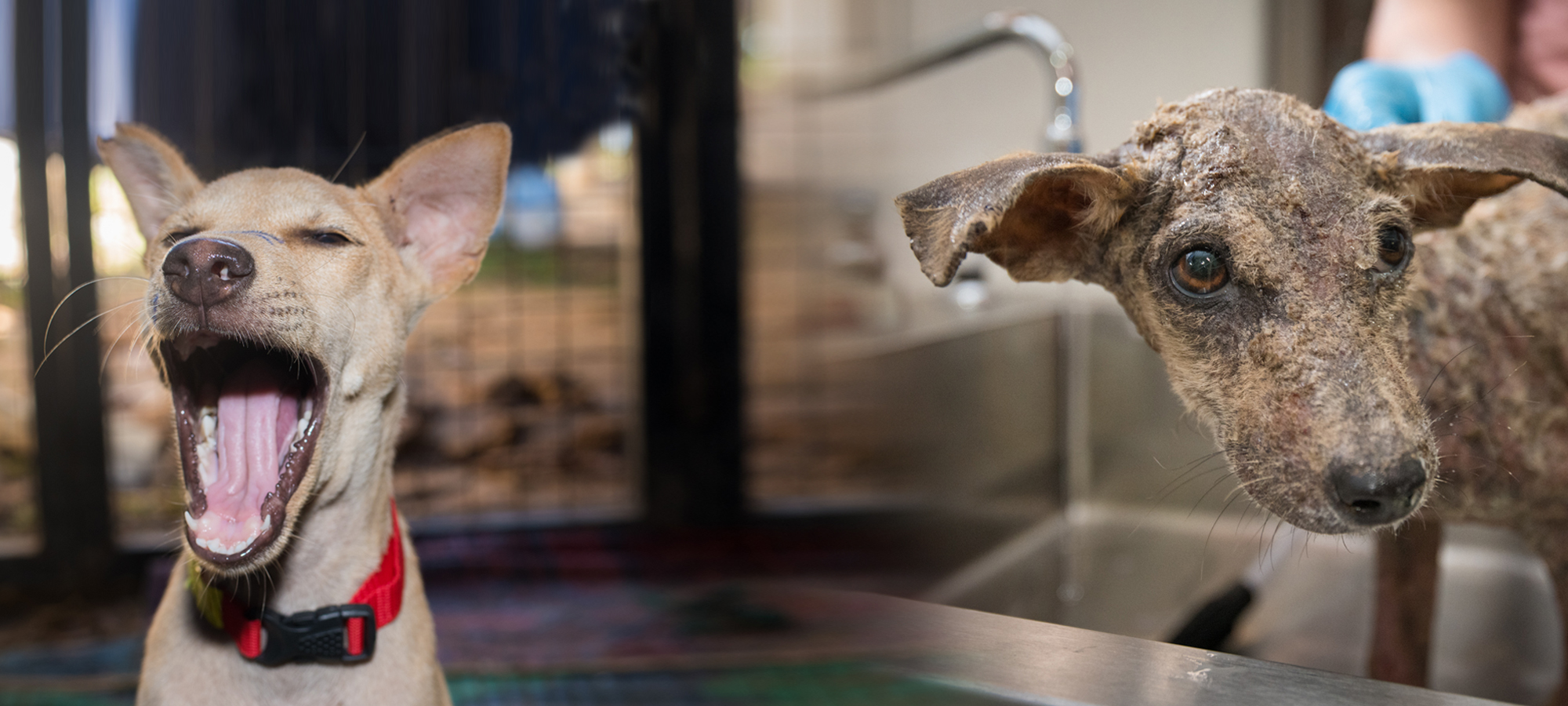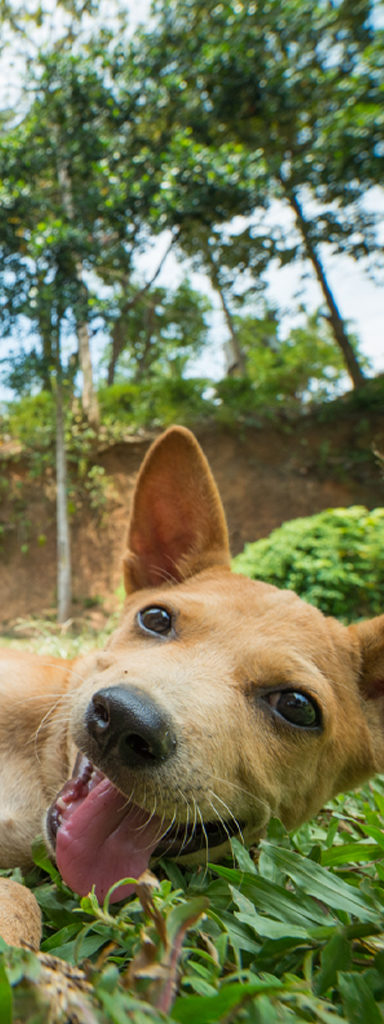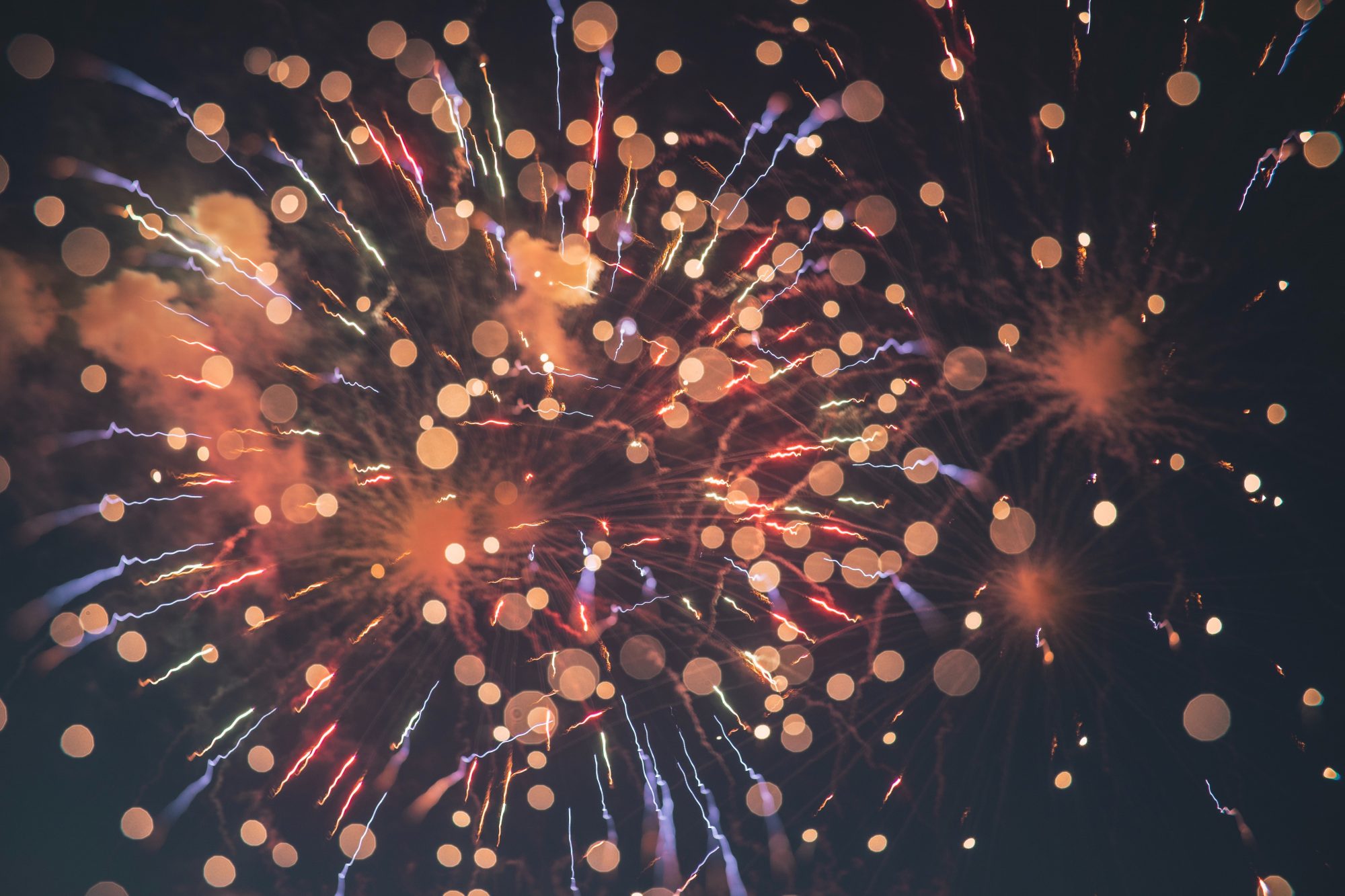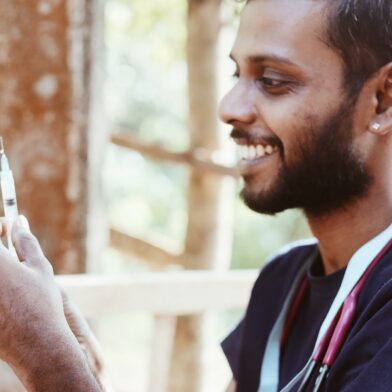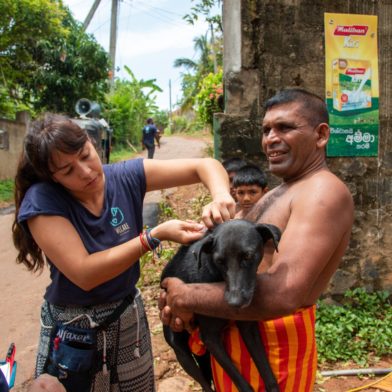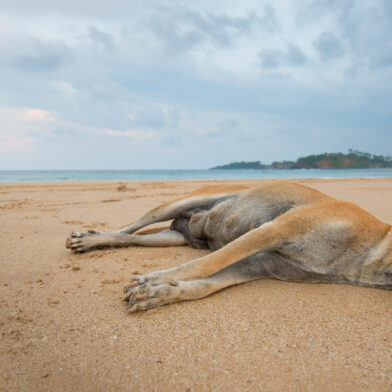
14th April marks the start of Sinhala and Tamil new year, a holiday that is governed by the sighting of the new moon. It’s traditionally celebrated by visiting relatives, sharing special foods and rituals, and the unmistakable explosive sounds of firecrackers.
While it’s an exciting and festive time for us humans, dogs – who have a far more acute sense of hearing – can really struggle with the loud, erratic noises of celebratory fireworks, which can be heard round the clock in the days leading up to new year.
“Fireworks are scary for dogs for a few reasons,” says veterinary surgeon and WECare volunteer coordinator Dr. Jo Mockford.
“They’re loud, unpredictable and create a feeling of entrapment. It’s natural for dogs to be afraid of loud noises. It triggers their sympathetic nervous system and causes a release of adrenaline – the fight or flight hormone.”
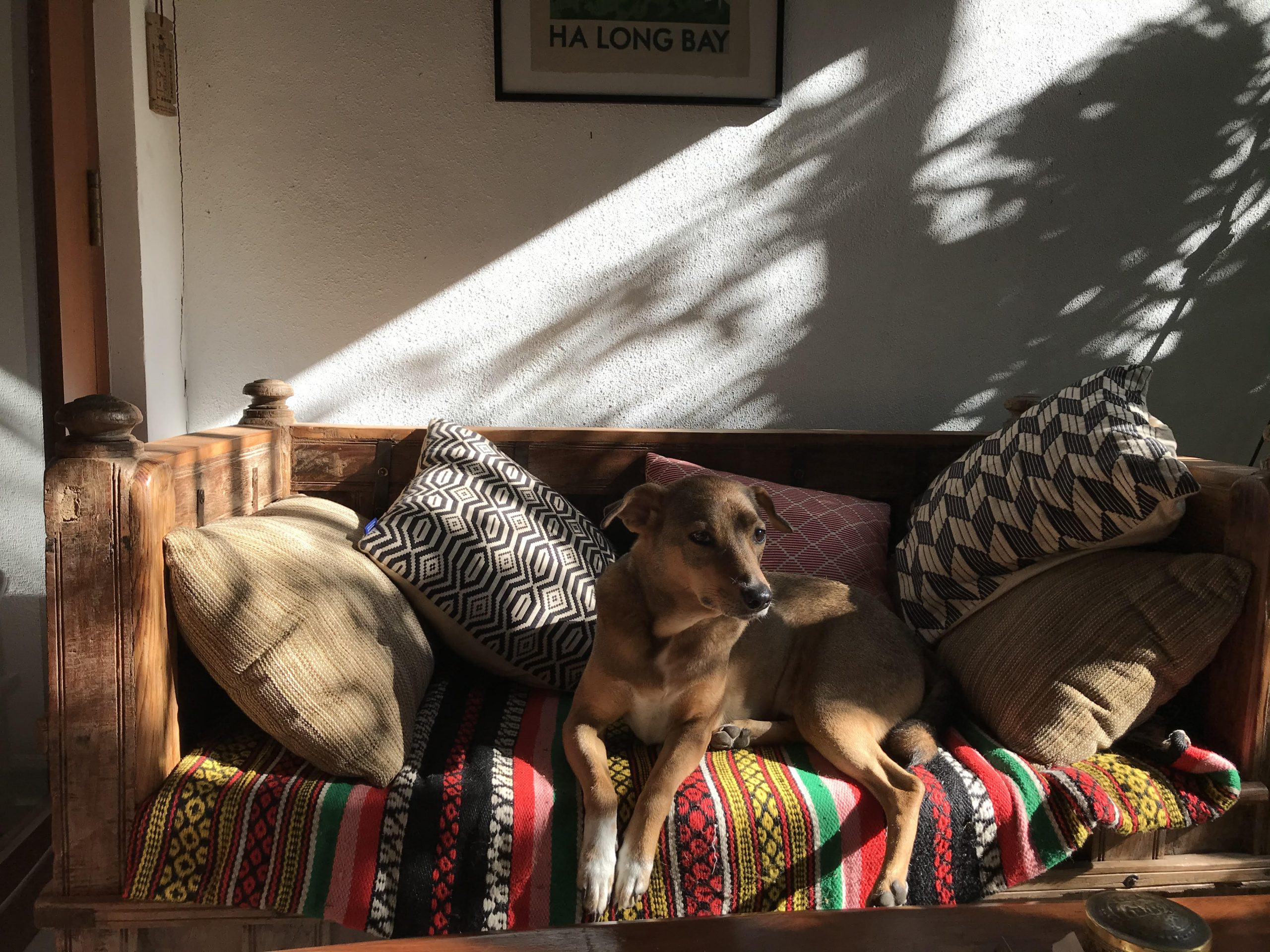
“When your dog is scared, there are a few things you might notice, from them being a little quiet and hiding to aggression and running away,” explains Dr. Jo.
“Commonly observed indications of fear can include trembling, freezing, panting and salivation, pacing, incontinence, low body posture and tail carriage, whining, trying to run away, and destructive behaviour.”
“How can I help my pet dog calm down during loud noises?”
Veterinary surgeon and WECare veteran Dr. Jo Mockford has some tips on keeping your dog safe during firework season:
- Ensure your house / outside space is secure
“Running away is a common strategy for scared dogs – they go into ‘fight or flight’ mode. If your dog escapes they are at risk of getting lost, encountering traffic, wildlife etc. Keep your dog secure, though I advise against chaining your dog or locking them in their kennel/crate, as they need to feel like they can move away and hide if they need to. Preventing them from doing this can cause further trauma.”
- Make your dog a safe space they can retreat to
“Ideally this is a space they already identify as their own, so think about setting it up a few weeks before firework season. For example a kennel or crate (keep the door open) with a blanket and water inside, a little den behind the sofa, under a bed etc. If your dog chooses to go to this space they should be allowed their own company – do not try and fuss or comfort them.”
- Distraction is a great tool
“Playing music or having the TV on can create some familiar background noise. Additionally, playing with your dog or practicing obedience can help keep their mind off things.”
- If your dog comes to you, offer them comfort
“A good time for head scratches.”
- If you normally take your dog for walks, walk them before it gets dark
“Consider keeping them on leash all the way; just in case some rogue daytime firecrackers are let off.”
- Try a calming wrap
“Some (not all!) dogs find the application of light full body pressure soothing. There are various products available online at ThunderShirt.”
- Stay calm yourself
“Having a fearful scared pet can be scary and upsetting for us as owners. Do your best to stay calm so your dog doesn’t feed off your anxiety also.”
- If your dog is very scared of fireworks, please reach out to your vet
“For some dogs that have extreme noise fear, we can prescribe some anti-anxiety medication (that can have a light sedative effect also) for use in the short term. Please do not self prescribe or give human medication to your dog without direct veterinary guidance – leave that job to us!”
- Look at behaviour strategies such as desensitisation as a long-term solution
“Changing dog behaviour is tricky, and can take a painfully longtime, but is ultimately worth it. I would only recommend attempting it under veterinary guidance in order to prevent further accidental trauma from being caused. Behaviour therapy needs to be viewed as a long-term solution i.e. started months before firework season starts!”
As well as the island’s pets, there are an estimated 1-3 million roaming dogs on the island and this can be an incredibly frightening time for them. There’s also the issue that anyone and everyone can buy fireworks in Sri Lanka.
“The danger with fireworks in Sri Lanka is that their purchase/use is totally unregulated,” says Soharni Tennekoon, founder of Ceylon Street Dog Project.
“They’re ubiquitous, sold in any quantity your heart desires, with zero age restrictions, or zoning regulations. Minors can buy them at a roadside stall and set them off further down the road. It’s all culturally acceptable.
“A lot of pets go missing during Avurudu, while instinctively trying to escape the overwhelming, unpredictable explosive noises around them.
“For them, it must feel like the sky is literally falling. Many dogs are so frightened they unknowingly bolt into oncoming traffic.”
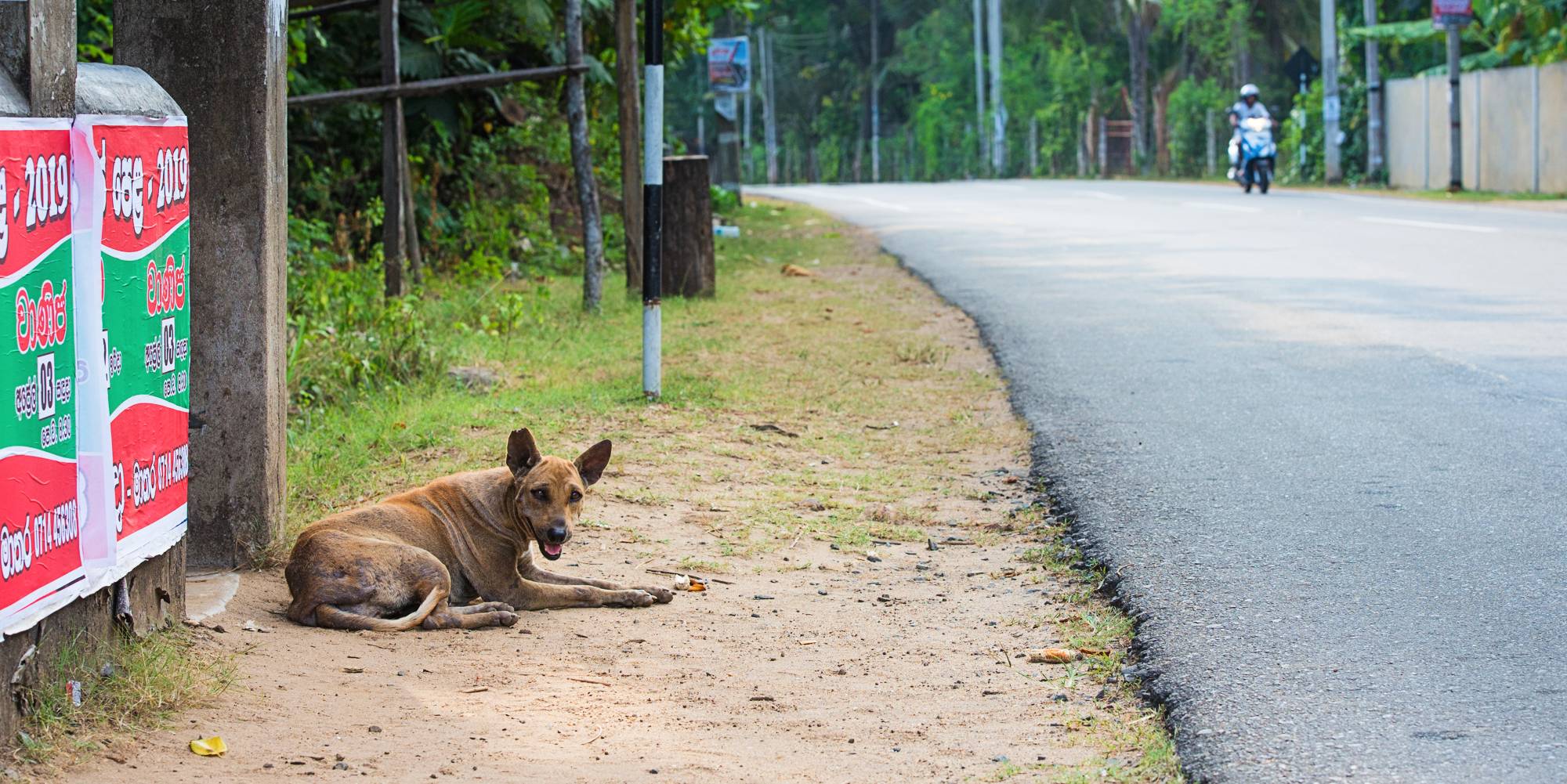
“My ex-street dog George jumps if the wind slams a door shut, so he’s a wobbly mess during fireworks season,” continues Soharni.
“Lucky for George he no longer has to face it alone on the streets – he now rides it out safely under our bed.
“That said, there have been times he’s been so terrified he’s tried to bolt out of the house (destination unknown but thankfully he’s never been successful).
“It makes me really feel for street dogs during this time, as they’ve nowhere to seek refuge when fireworks randomly go off on the streets – the very place they call home.”
“How can I help street dogs during fireworks season?”
Obviously the best way to keep animals safe is to not set off fireworks or firecrackers at all. Sparklers are a great alternative! However, we’re aware that’s a simplistic solution, so if you do intend on setting them off, please do so safely, with consideration for your community animals.
- Check for animals before setting off firecrackers
Don’t set off fireworks or firecrackers anywhere near animals, as the loud noise may cause them distress, and could make them run away into oncoming traffic, causing injury to themselves or others.
- Allow street animals to shelter in your property
If you have a garden or yard, consider putting food and water under a covered area for animals seeking shelter.
- Keep an eye out for injured animals
Many animals are injured around Avurudu – if you see a dog in need between Matara – Tangalle, please contact us.
Have a safe and happy new year, from everyone at WECare!
Our clinic in Kapugama will continue to operate as emergencies only during the new year holiday season.
Suba aluth auruddak wewa!
Share this post
Go on, give it a share and spread the word about WECare to all your online pals!
Related reads
